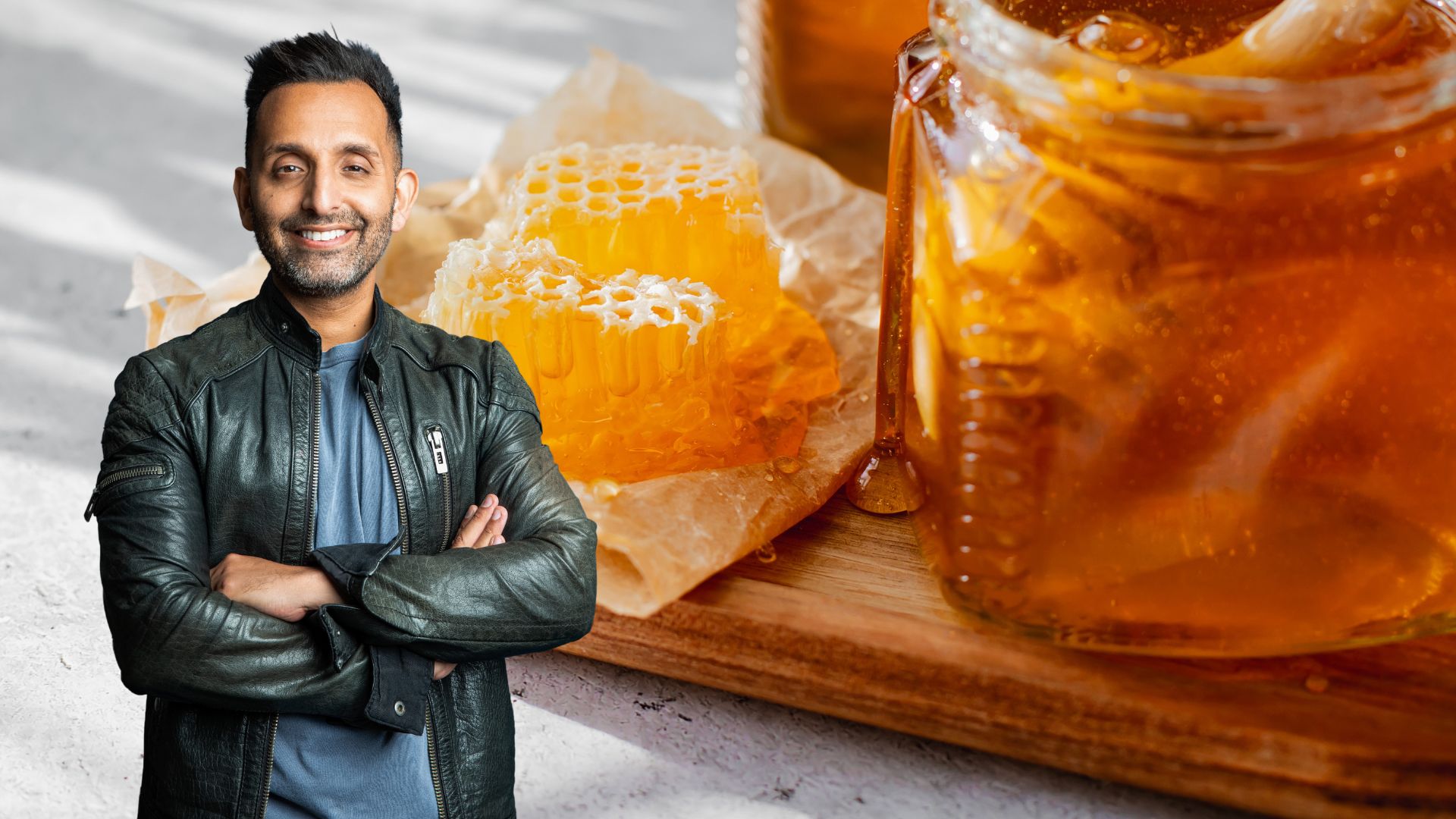Sorry, local honey doesn't prevent hay fever symptoms, Dr Amir Khan says - but here's what does
The doctor shared his tips exclusively with woman&home for those suffering in the summer months

Hay fever is among the most common allergies, striking between late March and mid-May and lasting throughout the summer. As the weather gets warmer, hay fever symptoms get worse as plants produce more pollen.
The good news is, there's still time for summer sufferers to prevent symptoms like the classic hay fever cough, runny nose, and scratchy throat, provided you stick to the recommended methods.
One way to prevent hay fever symptoms that's a total "myth" is local honey. It just doesn't work that way, says Dr Amir Khan, woman&home's new resident GP.
"Eating local honey does not desensitise you or reduce your symptoms. Bees collect honey from flowers, not the grasses, weeds, and trees that cause your symptoms, sorry!"
Hay fever is an allergic reaction to airborne pollen, but it can also be a reaction to dust, mould, and even pet dander, explains the doctor.
Two options proven to work for preventing and combatting symptoms are natural hay fever remedies to avoid the pollen, and medication to prevent the symptoms in the first place.
"For seasonal hay fever, you can try things like staying indoors, not hanging your washing up to dry outdoors, ensuring all windows are closed at home to stop pollen getting in, wearing sunglasses to keep pollen form your eyes, and taking a shower when you get home to wash off any pollen that may be stuck to you. All of these can offer some relief," says Dr Khan.
Sign up to our free daily email for the latest royal and entertainment news, interesting opinion, expert advice on styling and beauty trends, and no-nonsense guides to the health and wellness questions you want answered.
A post shared by woman&home (@womanandhome)
A photo posted by on
How to prevent hay fever symptoms
Instead of honey, the doctor recommends trying a steroid nasal spray at least two weeks before your symptoms start showing. "This is preferable for prevention over antihistamines," he says.
"The nasal sprays reduce inflammation, and the steroid in them can prevent your immune system from over-responding to the pollen."
Antihistamines are best for those already experiencing symptoms. So if your throat is already scratchy, your eyes are watering, and your nose is congested, it's time to go to the pharmacy.
"Antihistamines are best taken to relieve symptoms and are divided into older and newer generations. The older ones, like chlorpheniramine (Piriton), can cause drowsiness and are thought to be less effective, so they are best avoided," he says.
"Go for newer generations like cetirizine, loratadine and fexofenadine. They work for longer and don’t cause drowsiness," he says. "Your pharmacist will be able to help you choose the right antihistamine for you."
When allergy season starts for you also depends on when you get symptoms. If you get them in the springtime, you're likely allergic to tree pollen like birch, oak, and ash, whereas those who get sniffly in the summer are likely allergic to grass pollen, he says.
"And if you get hay fever all year round, chances are, you are allergic to dust mites, mould, or pet dander," he adds.

Grace Walsh is woman&home's Health Channel Editor, working across the areas of fitness, nutrition, sleep, mental health, relationships, and sex. She is also a qualified fitness instructor.
A digital journalist with over seven years experience as a writer and editor for UK publications, Grace has covered (almost) everything in the world of health and wellbeing with bylines in Cosmopolitan, Red, The i Paper, GoodtoKnow, and more.

